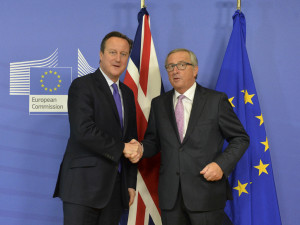Brexit Averted...For Now
Leaders from the European Union met in Brussels on February 19 to negotiate a new agreement that redefines the relationship between Great Britain and the European Union, Euronews reported. Great Britain’s Prime Minister, David Cameron, arrived at the summit with a list of demands, saying that only if they were accepted would Great Britain remain a member of the EU. After 48 hours of negotiation, leaders of the EU’s 28 member states accepted Cameron’s demands, reaching an accord that will offer Great Britain special status within the union.

This special status includes a number of concessions to Great Britain, such as limiting benefits given to EU workers within its borders. Another request was granted to further restrict immigration into the area, EU Observer reported. The reforms proposed by Great Britain were welcomed by many European leaders, many of whom were favorably inclined towards changing the EU’s institutions.
Despite the reforms passed in Brussels, Prime Minister Cameron must still persuade members of his Parliament to reach a consensus regarding Great Britain’s relationship with the EU. The Independence Party,which was founded in 1993 and is well known for its eurosceptic and right-wing populist platform, as well as a large portion of the British press and the Conservative Party, have been particularly critical of these reforms.
The British public remains significantly divided over the issue. As a result, Cameron has scheduled a referendum for late June, stating in an interview with Politico Europe Edition that “The British people must now decide whether to stay in this reformed European Union, or to leave.”
Only time will tell whether Britain will remain a member of the EU. A possible Brexit could shift political and economic balances and even threaten the existence of the EU itself.
